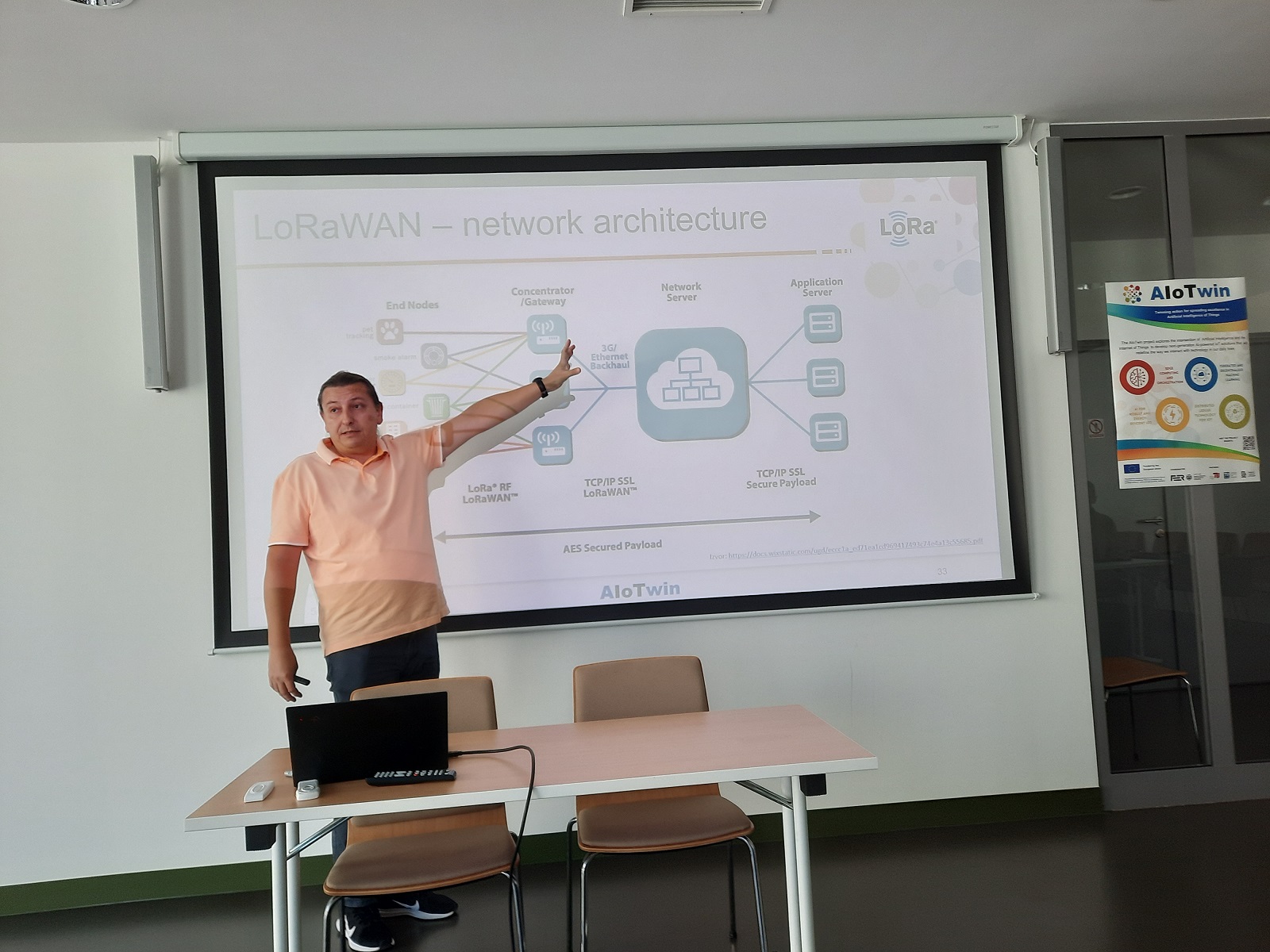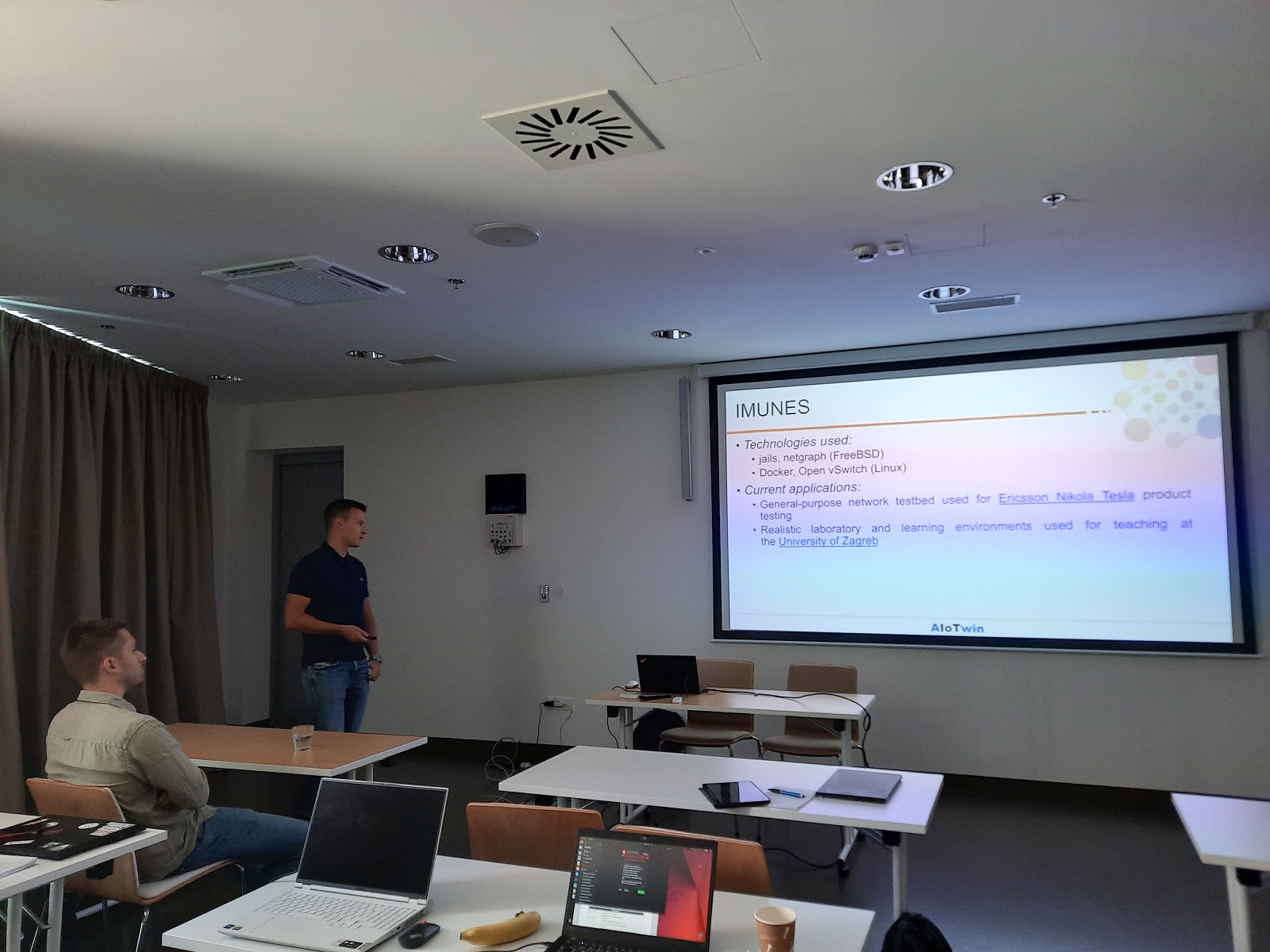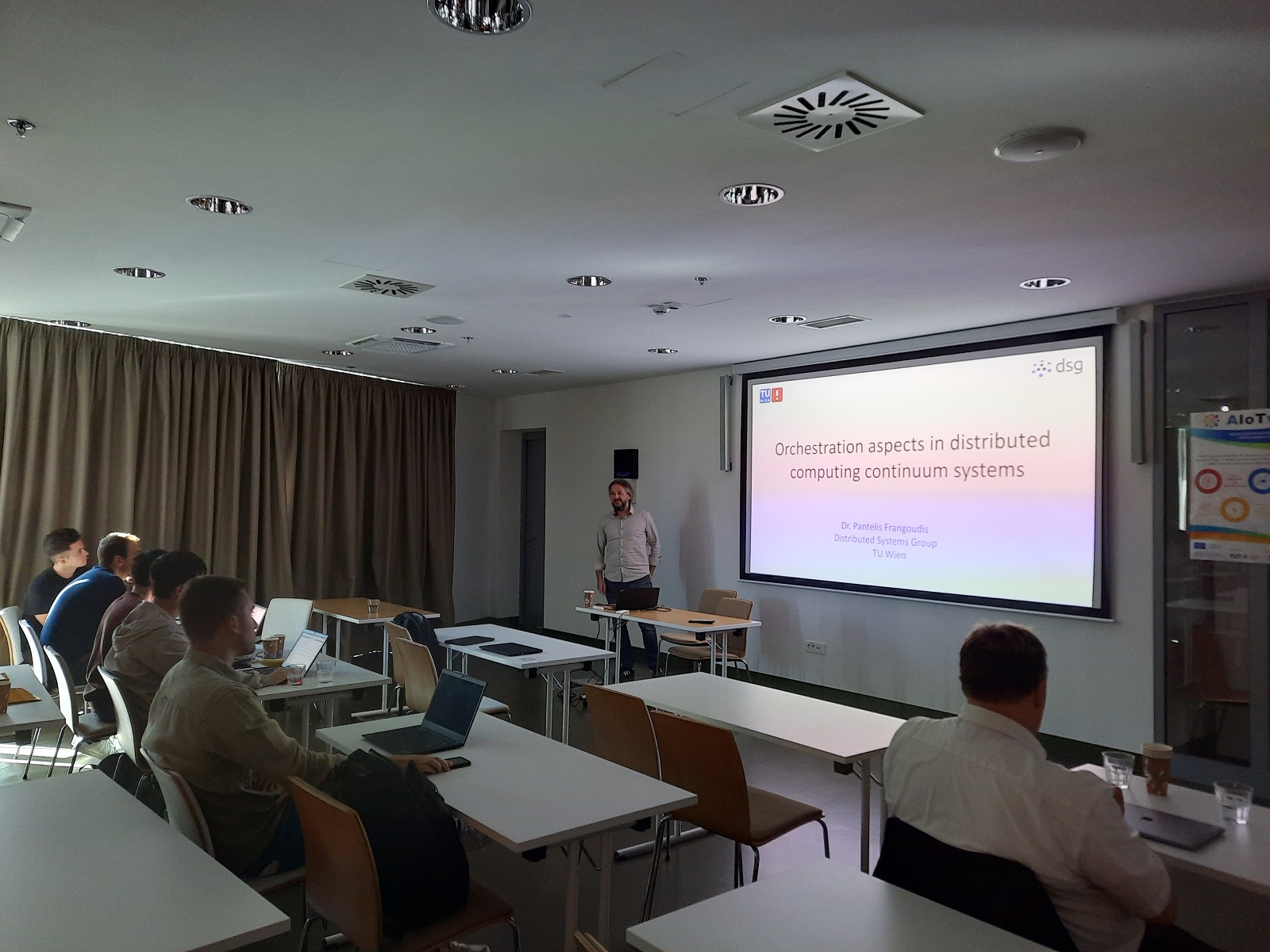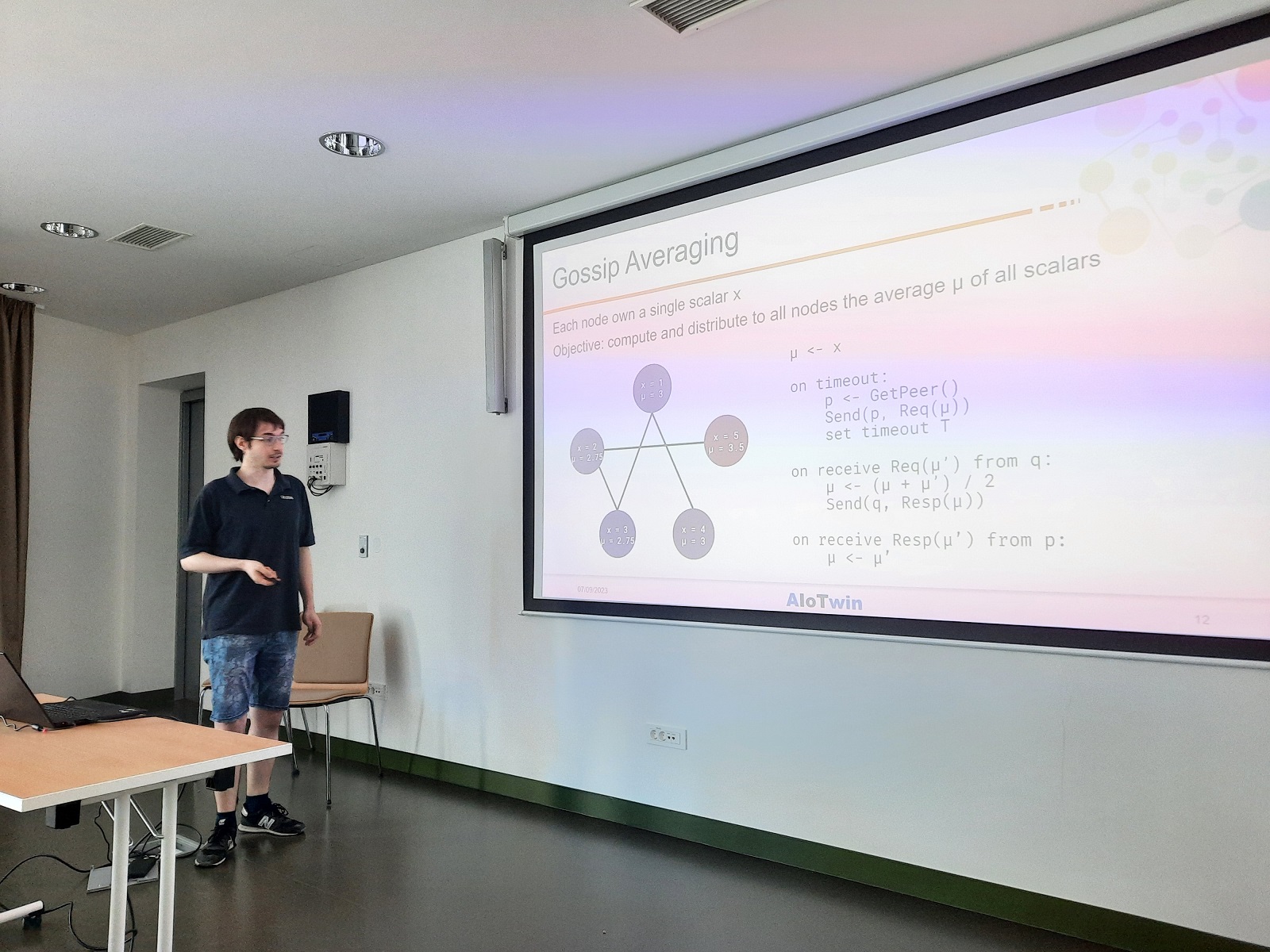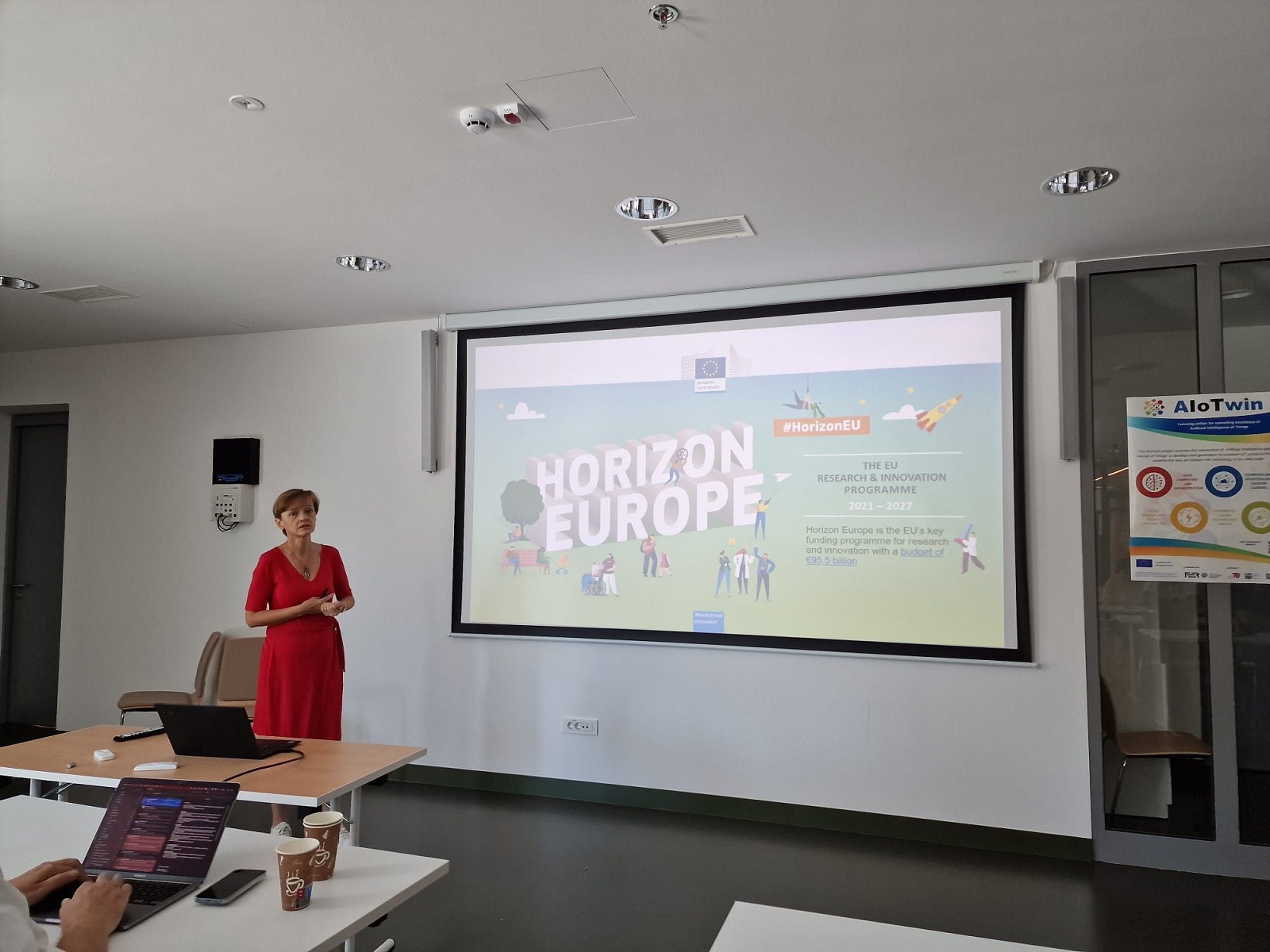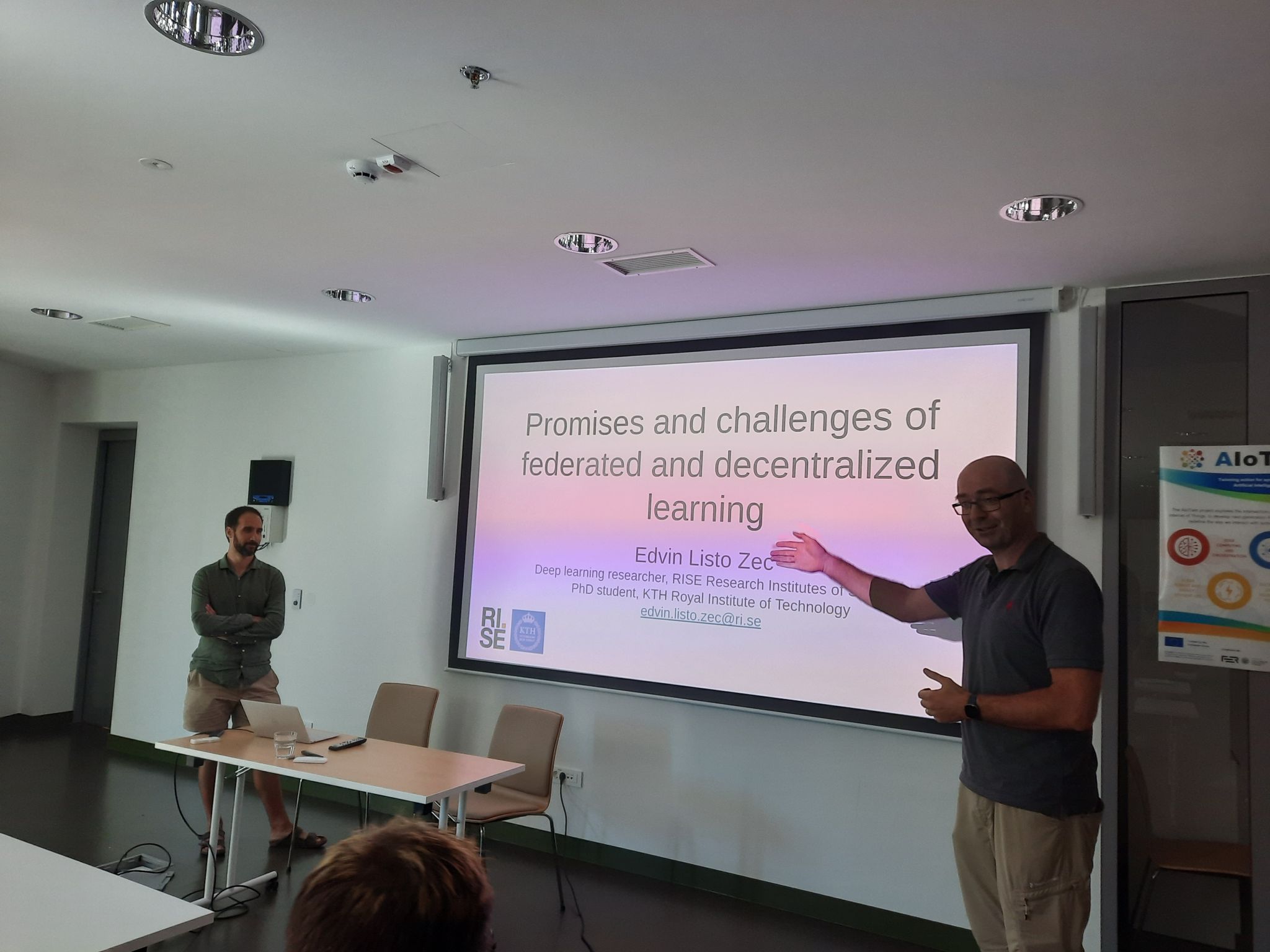Mario Kušek - The landscape of IoT protocols - practitioner’s view
This talk gives an overview of the typical architecture of IoT systems and the IoT protocol stack. We then address the requirements for wireless device communication in terms of range, frequency spectrum, network topology and energy consumption. We analyse and compare protocols belonging to the family of low-power and mid-range protocols (IEEE 802.15.4, ZigBee, Z-Wave, IEEE 802.11ah) and Low Power Wide Area Network (LPWAN) protocols such as LoRaWAN, NB-IoT and Sigfox. We report on our experiences with the use of LoRa and LoRaWAN for precision agriculture applications.
Ivan Čilić, Petar Krivić - Network emulator IMUNES and edge performance evaluation
In this tutorial, we demonstrate the use of the Imunes network emulator/simulator and the applicability of the tool for conducting experiments in edge computing research. In the first part of the tutorial, we show the features of Imunes and how we used it to evaluate our dynamic scheduling algorithm for edge computing. In the second part, we perform a live demonstration of the tool and a step-by-step setup to test a simple service placement algorithm implemented within the K3s container orchestration tool.
Martin Gaedke - The 5 Steps of the PhD Journey - A coaching session for greater clarity, effectiveness, and fulfilment
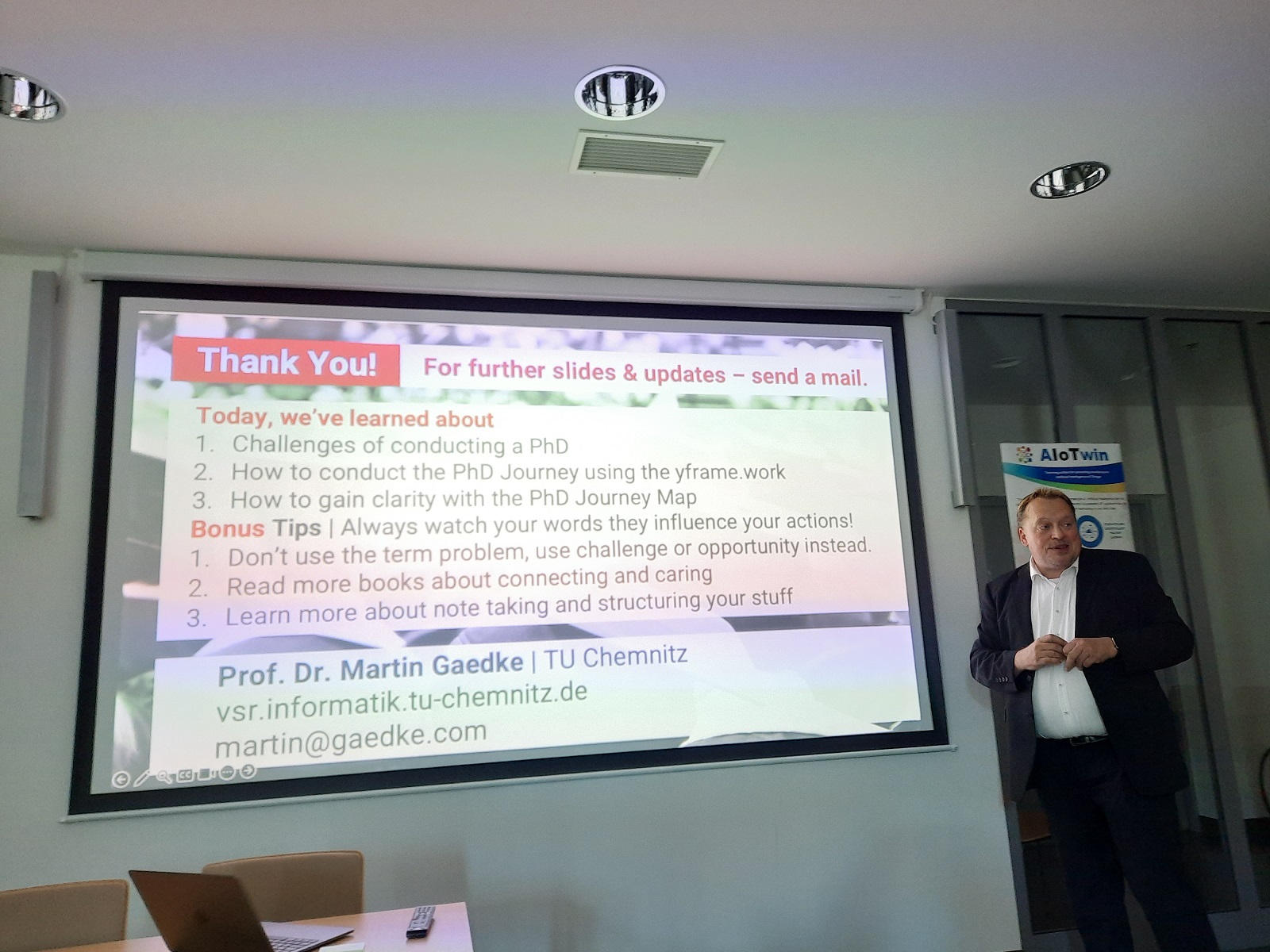 In this high-impact coaching session, we will embark on a deep exploration of the PhD journey, aimed at empowering students with the knowledge and tools they need to excel in their research careers. The core objective is to cultivate a holistic, strategic, and high-performance approach to the doctoral process, ensuring each student gains the maximum benefit from this critical period in their academic life.
In this high-impact coaching session, we will embark on a deep exploration of the PhD journey, aimed at empowering students with the knowledge and tools they need to excel in their research careers. The core objective is to cultivate a holistic, strategic, and high-performance approach to the doctoral process, ensuring each student gains the maximum benefit from this critical period in their academic life.The session's centerpiece is the innovative approach known as "The 5 Steps of the PhD Journey." This comprehensive roadmap demystifies the doctoral process by breaking it down into five manageable stages, including: onboarding with clarity and the right mind set, becoming an expert, structuring the research process in a smart way, developing contributions effectively, and mastering the final step of thesis writing and defense. By understanding these steps and their interconnections, students can navigate their PhD journey with greater clarity, confidence, and direction.
A central theme throughout the session is the concept of a "High Performance PhD." We'll explore this paradigm, emphasizing the importance of effectiveness, resilience, and personal well-being in academic research. We aim to instill a proactive mindset, where students learn to manage their workload effectively, cope with the typical challenges, and maintain well-being and relationships while still delivering exceptional research output.
Finally, we'll delve into an arsenal of proven strategies, tactics, and practical tools that will amplify the students' research skills and productivity. From the PhD Journey Map for clear and efficient strategic decision making to techniques for structuring you activities on what really matters most, this session will equip students with awareness and the right focus for every stage of their PhD journey.
Overall, this coaching session promises to provide a blend of conceptual understanding, practical skills, and motivation, aiming to enhance the students' overall PhD experience, promoting clarity, effectiveness, and fulfillment in their research endeavors.
Pantelis Frangoudis - Orchestration Aspects in Distributed Computing Continuum Systems
This tutorial begins by a definition of the emerging device-to-cloud computing continuum, and provides an overview of its distinctive features. We then clarify the meaning of orchestration in this context both from an infrastructure and an application service view. This dual perspective is a central theme in this tutorial. We then delve into the details of the infrastructure technologies that compose the continuum, both regarding connectivity and computation. The continuum is a complex computation environment, and managing it more efficiently calls for intelligent mechanisms. At the same time, next-generation IoT applications that run on top of it rely more and more on AI/ML processes. We thus focus on the nascent research field of "edge intelligence," which is at the intersection of edge computing and AI. The tutorial concludes with remarks on what we consider necessary for the management and orchestration of future distributed computing continuum systems.
Lodovico Giaretta - Tutorial on Decentralized Graph Mining (Gossip Protocols + Graph Representation Learning)
This tutorial introduced the topic of deep learning on decentralized graph structures, including the motivation for fully decentralized learning, its potential use cases involving decentralized graphs, the problems faced in efficiently performing these learning tasks, and ongoing research into their optimization. In order to properly understand these aspects, the tutorial first provided the necessary background in Gossip Learning and Graph Neural Networks (GNNs). Gossip Learning was introduced as an efficient technique to perform fully decentralized aggregation tasks, and in particular ML model averaging. GNNs were presented as the most effective approach for deep learning on graph-structured data.
Ivana Podnar Žarko, Maja Matijašević - Proposal writing and evaluation of collaborative Horizon Europe projects
This is an introductory tutorial which provides essential information on the Horizon Europe R&I programme, covering the following topics:
- How to find information on call topics
- Requirements for defining a collaborative project
- Proposal preparation process
- Proposal evaluation steps
- Details of the application form (Part A and Part B) with examples
- Evaluation criteria (excellence, impact, and quality and efficiency of implementation)
Edvin Listo Zec - Current challenges within federated and decentralized learning
Federated learning has received attention for its efficiency and privacy benefits, in settings where data is distributed among devices. Although federated learning shows significant promise as a key approach when data cannot be shared or centralized, current incarnations show limited privacy properties and have shortcomings when applied to common real-world scenarios. One such scenario is heterogeneous data among devices, where data may come from different generating distributions.
In this presentation we will go through federated learning and challenges associated with it, with a focus on heterogeneous data.

